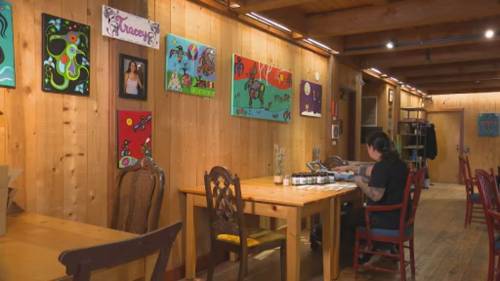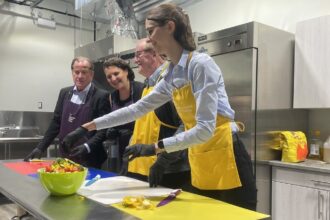The sizzle of wild game on a hot grill and the earthy aroma of foraged ingredients are becoming increasingly familiar in Canada’s culinary landscape, signaling a profound cultural renaissance led by Indigenous chefs across the nation. From Vancouver to Halifax, these culinary artists are reclaiming their heritage while simultaneously reshaping what defines Canadian cuisine.
“Our food tells our stories,” explains Chef Joseph Shawana, who has built his reputation on dishes featuring traditional Ojibwe ingredients. “When I prepare a meal using wild rice that my community has harvested for generations, I’m not just cooking—I’m preserving knowledge that colonization tried to erase.”
This culinary revival extends far beyond restaurant kitchens. Indigenous food entrepreneurs are launching successful businesses ranging from food trucks serving bannock burgers to packaged food companies distributing traditional teas and preserves to mainstream grocery chains. What began as isolated efforts has blossomed into a nationwide movement that’s gaining international recognition.
The rise of Indigenous cuisine reflects a deeper societal shift. According to recent data from Tourism Canada, culinary tourism focused on Indigenous food experiences has increased by 37% since 2019, with visitors specifically seeking authentic cultural connections through food.
“We’re witnessing a remarkable reclamation of cultural identity through these culinary expressions,” notes Dr. Elaine Power, food studies researcher at Queen’s University. “These chefs aren’t just sharing recipes—they’re educating Canadians about Indigenous worldviews, sustainable food systems, and the complex history of this land.”
The movement faces significant challenges, however. Many Indigenous communities continue to experience food insecurity at rates far exceeding the national average. Access to traditional ingredients remains limited in urban settings, and knowledge transfer between generations was severely disrupted by residential schools and forced relocations.
Yet innovation flourishes despite these obstacles. Chef Jenni Lessard, a Métis culinary leader from Saskatchewan, has developed a successful line of products featuring locally foraged ingredients. “Our ancestors were the original practitioners of the farm-to-table philosophy that’s now trendy,” she explains. “They understood that food connects us to the land, to each other, and to our history.”
This resurgence is reshaping Canada’s culinary identity. Restaurant critics and food media increasingly recognize Indigenous cuisine as central to understanding Canadian food culture, rather than relegating it to a niche category. Major culinary schools have begun incorporating Indigenous food knowledge into their curricula, acknowledging its importance to the country’s gastronomic heritage.
The economic impact is substantial as well. Indigenous food businesses are creating jobs and economic opportunities in communities that have historically been marginalized from Canada’s business landscape. Young Indigenous entrepreneurs are finding pathways to success by combining traditional knowledge with contemporary business practices.
As this movement gains momentum, it raises important questions about reconciliation through food. Can the sharing of Indigenous culinary traditions foster greater understanding between Indigenous and non-Indigenous Canadians? As we collectively redefine what constitutes “Canadian cuisine,” will we finally acknowledge the fundamental contributions of the First Peoples who have been stewards of these lands for millennia?











